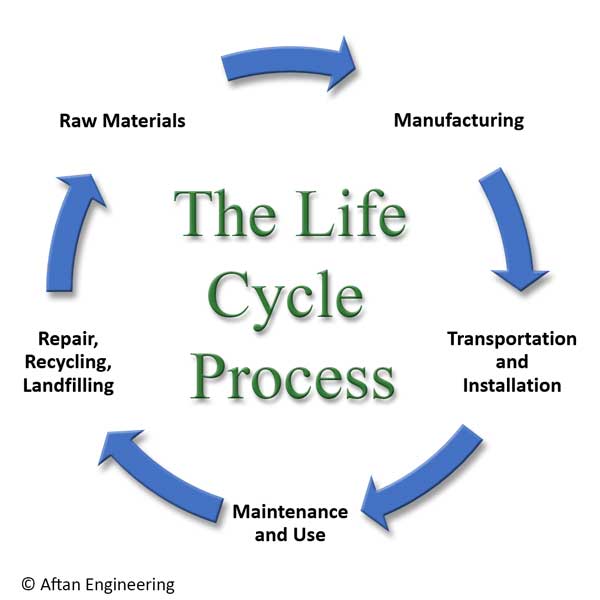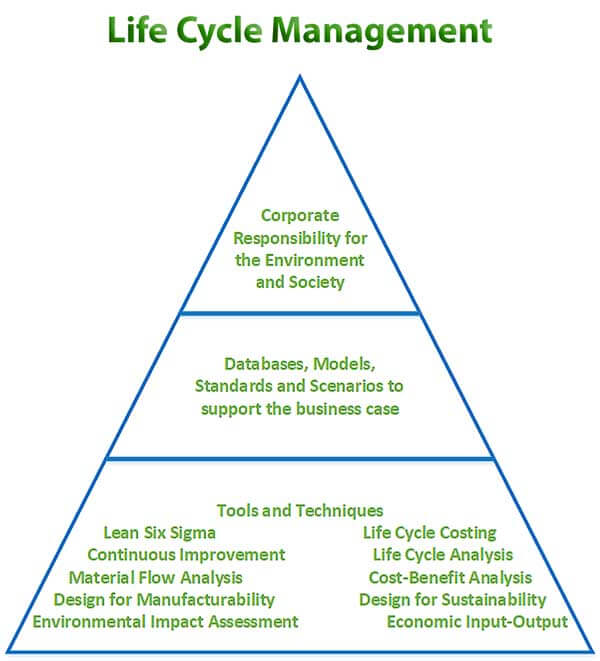Life Cycle Management (LCM)
Empowering Sustainable Solutions for a Greener Future
839 Alleghenyville Road Mohnton, PA 19540-7708
Tel. 610-914-1356 email: lpeterson@aftan.com

Critical review of a Life Cycle Assessment Report provides assurance that the assessment is consistent with the standard to which the study refers.
If you intend to publish the results of your LCA study, an independent external critical review is necessary.
If you are making a comparative assertion, a three person panel will be necessary for the critical review.
The LCA Critical Review is intended to verify that the:
We provide critical review of LCAs and carbon footprint reports per ISO 14040, ISO 14044 and ISO 14067, serving as panel lead, panelist or sole reviewer.
We specialize in critical review of leading edge technology and smart products.
|
|
|

Life Cycle Management (LCM) considers the comprehensive impact a product or service has on the environment. Life Cycle Management includes the product's entire Life Cycle from Cradle to Grave including the environmental impact of the
Read this page to discover how to
Carbon Footprint measures greenhouse gas (GHG) emissions which most significantly includes
Scope 1: Direct Emissions result from fuels consumed by the company on site for equipment, vehicles, and heating.
Scope 2: Indirect Emissions resulting from power plants producing electricity purchased by the company.
Scope 3: Indirect Emissions resulting from fuels consumed outside of the company by
Direct Water Use is fresh water consumed during manufacturing or production of the product or service as well as for any support activities.
Indirect Water Use is fresh water consumed by the extraction and processing of raw materials.
Green Water Footprint - The amount of water from precipitation that is used to make the product.
Blue Water Footprint - The amount of surface water and groundwater that is used to make the product.
Grey Water Footprint - The amount of freshwater that is used to dilute polluted production wastewater to meet water quality regulations.
In the next section I'll introduce some of the common tools used by companies with successful Life Cycle Management programs.
LCA
After defining the goal and scope of the analysis, an inventory is created to document inputs and outputs of the process, product, or system covering all life cycle phases including
LCA provides an organized, consistent approach to evaluate processes, products, or systems which leads to meaningful and useful Life Cycle Impact Assessments (LCIA)
LCCA

Lisa Peterson, Ph.D., PE, MBA is the President of Pennsylvania-based Aftan Engineering. Lisa is a uniquely qualified professional Sustainability, Life Cycle Assessment (LCA), and ISO 14001 Consultant with a Ph.D. in Environmental Engineering, a Lean Six Sigma Black Belt Certification, 30 years' engineering experience, and has held high-level management positions. Lisa specializes in Leading Edge Technology and Smart Products. Read Lisa's Resume.